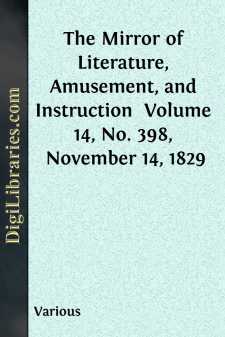Categories
- Antiques & Collectibles 13
- Architecture 36
- Art 48
- Bibles 22
- Biography & Autobiography 815
- Body, Mind & Spirit 144
- Business & Economics 28
- Children's Books 18
- Children's Fiction 14
- Computers 4
- Cooking 94
- Crafts & Hobbies 4
- Drama 346
- Education 58
- Family & Relationships 59
- Fiction 11835
- Games 19
- Gardening 17
- Health & Fitness 34
- History 1378
- House & Home 1
- Humor 147
- Juvenile Fiction 1873
- Juvenile Nonfiction 202
- Language Arts & Disciplines 89
- Law 16
- Literary Collections 686
- Literary Criticism 179
- Mathematics 13
- Medical 41
- Music 40
- Nature 180
- Non-Classifiable 1768
- Performing Arts 7
- Periodicals 1453
- Philosophy 65
- Photography 2
- Poetry 896
- Political Science 203
- Psychology 44
- Reference 154
- Religion 515
- Science 126
- Self-Help 85
- Social Science 83
- Sports & Recreation 34
- Study Aids 3
- Technology & Engineering 60
- Transportation 23
- Travel 463
- True Crime 29
Our website is made possible by displaying online advertisements to our visitors.
Please consider supporting us by disabling your ad blocker.
The Music Master Novelized from the Play
by: Charles Klein
Description:
Excerpt
Chapter One
Anton Von Barwig rapped on the conductor's desk for silence and laid down his baton. The hundred men constituting the Leipsic Philharmonic Orchestra stopped playing as if by magic, and those who looked up from their music saw in their leader's face, for the first time in their three years' experience under his direction, a pained expression of helplessness.
"Either I can't hear you this morning, or the first violins are late in attacking and the wood wind drags—drags—drags."
"What's the matter? We've played this a hundred times," growled Karlschmidt, the bass clarionet player, to Poons, the Dutch horn soloist, who sat at the desk next to him.
Karlschmidt was a socialist, a student of Karl Marx, and took more interest in communism than in his allotted share of the score of Isolde's Liebestodt. Indeed, nearly all the men were interested in something other than the occupation which afforded them a living. For them the pleasure of music had died in the business of attaining accuracy.
"What did he say?" asked Poons, losing Von Barwig's next remark in trying to hear what Karlschmidt was mumbling.
"He said it's his own fault," whispered the second flute.
"He's quite right," assented Karlschmidt.
"Hush, hush!" came from one or two others. Von Barwig was addressing the men again, and they wanted to hear.
"Let's play; cut the speeches out," growled Karlschmidt. "For God's sake, what's he saying now?"
"Damn it! How can we hear when you won't keep quiet?" blurted a Germanised Englishman who had an engagement at the old Rathaus and wanted to get away.
"We're dismissed," said Poons, who couldn't hear. But the men at the violin desks down front were rising and putting away their instruments, and the others were slowly following their example.
Karlschmidt's face expanded into a smile; the prospect of avoiding the unpleasant grind of rehearsal had restored him to good humour. The lines of men were now breaking up into knots; bows were being loosened, violins put into cases and brass instruments into bags, while laughing and chatting became general. Poons looked at Von Barwig, who still stood on the small dais, staring out into space, and he saw that something was the matter. He loved Von Barwig; for years before, when hard times had sent him over the border from Amsterdam toward the German music centres, Von Barwig had extended him a helping hand, indeed had almost kept him from starving until he got an engagement in one of the minor Dresden theatres; Poons was grateful; and gratitude is a form of love that lies deeper than mere sympathy.
"Can I do something for you, Anton?" he asked a few moments later, as he stood at the conductor's desk. Von Barwig did not answer; and with his round face, and smiling eyes glancing appealingly at his conductor, Poons stood waiting like a little dog that patiently wags his tall in hope of his master's recognition. Presently he shook his head gravely and sighed. Surely something was wrong, for Anton was not himself. Never before had he stopped rehearsal and dismissed his men on the morning preceding a concert night, and, moreover, the night of the first performance of a new symphony—Von Barwig's own work....














